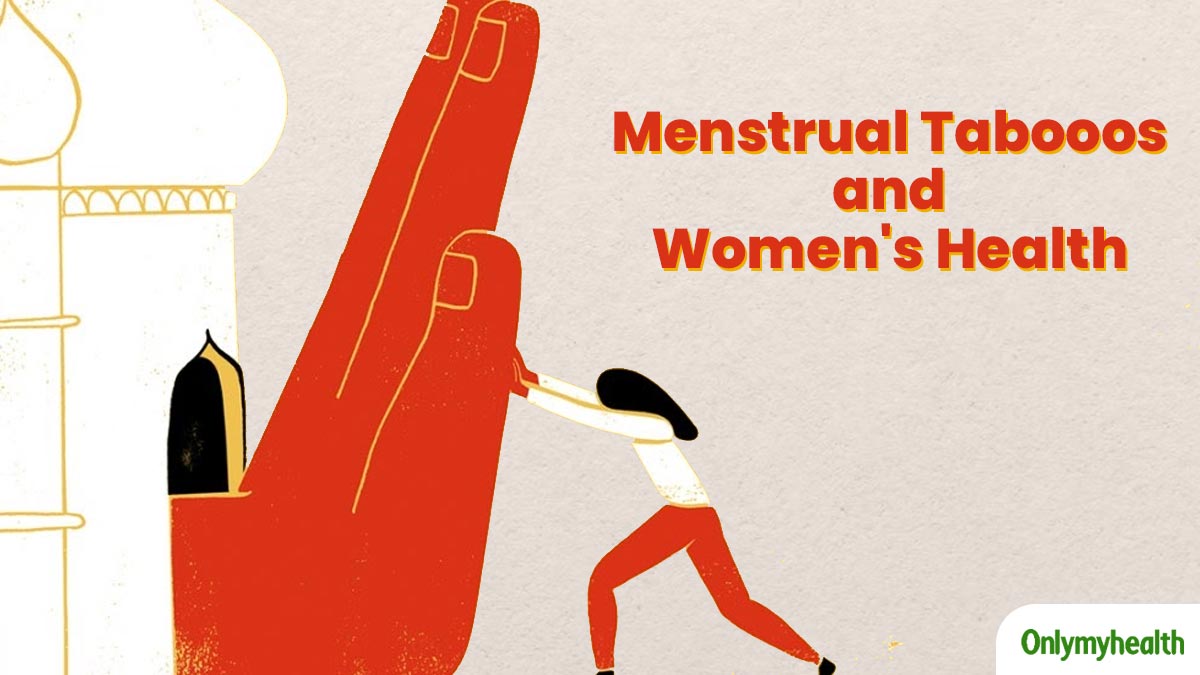
Menstruation is a natural and normal body function that affects half of the population yet it is treated as a taboo in many cultures and societies. Menstrual taboos are cultural or social practices that limit a woman’s activities during her menstrual cycle. These taboos involve myths and misinformation which have a significant impact on women’s health and wellbeing. Some practices dictate how menstruating women should behave and what they can do and with whom they can interact. They are often barred from religious functions and certain social gatherings. Through OnlyMyHealth’s ‘Period Education For All Campaign we aim to increase awareness ahead of World Menstruation Day which is observed on 28th May. In this article, Dr. Tejal Kanwar- Gynaecologist and Menstrual Health Consultant with Ujaas shares her opinion on how menstrual taboos are impacting the health of women.
Table of Content:-
Common menstrual taboos
- The most common taboo is the belief that women are impure and therefore should not participate in certain activities. This has led to social exclusion, feelings of shame and anxiety in women.
- Women are prevented from going to work or attending school which can limit their opportunities for education and economic advancement.
- Some taboos even prohibit women from using safe and hygienic menstrual products like pads or tampons, this can result in poor menstrual hygiene and risks of infection.
- In some cultures, women cannot even take a bath or wash their hair and that may affect the hygiene.
- Women start feeling isolated and the taboos surrounding menstruation can have negative mental effects. Due to the embarrassment surrounding this topic they don’t seek medical advice leading to severe health issues.

Impact of menstrual taboos on women’s health
Continuing with these taboos can have a profound effect on women, esp. their mental and physical wellbeing. It is crucial to challenge these taboos and promote the correct information and educate people about menstruation. Promotion and access to menstrual products and healthcare can help empower women and ensure a healthy fulfilling life free from stigma for them. Menstrual products must be available to everyone regardless of their geographical location or socioeconomic status.
Also Read: Prevent Menstruation Disorders By Making These Lifestyle Choices
How to overcome stigma
Here are some ways to achieve the goals to promote and protect women’s health and hygiene and reduce the stigma
1. Education

Providing comprehensive sex education that includes information on menstruation can help girls understand what to expect. This will help reduce the feelings of shame. Campaigns can help dispel myths and promote healthy practices. Changing the cultural attitudes towards menstruation through community engagement and conversations including the men and boys can promote the right positive portrayals of menstruation. This is a huge step. Menstruation is seen as a women’s issue but men and boys can play an important role in breaking the stigma and promoting menstrual equity.
2. Proving access to menstrual products
Governments and nonprofits and private companies can work together to provide affordable menstrual products to all.
Also Read: Does Lack Of Periods Mean Lack Of Fertility? Here’s What An Expert Has To Say
3. Addressing cultural taboos
We can break the myths by having discussions and sessions around the topic of menstruation by working with community leaders and religious figures.
4. Advocacy for policy changes
Governments can play an important role by implementing policies for accessibility and affordability of menstrual products in public spaces, in schools and at work.
5. Research
This can help us develop evidence-based policies and interventions to address various issues.
Ultimately breaking the silence and ending this stigma is not only a matter of health and wellbeing but also of promoting gender equality and human rights. By bringing about these changes we can create a world where menstruation is seen as a natural and healthy part of a woman’s life and where women can be free to participate in whatever activities they want in society.
We can help create a world where menstruation is not stigmatised and everyone has access to resources they need to live with dignity and respect
How we keep this article up to date:
We work with experts and keep a close eye on the latest in health and wellness. Whenever there is a new research or helpful information, we update our articles with accurate and useful advice.
Current Version